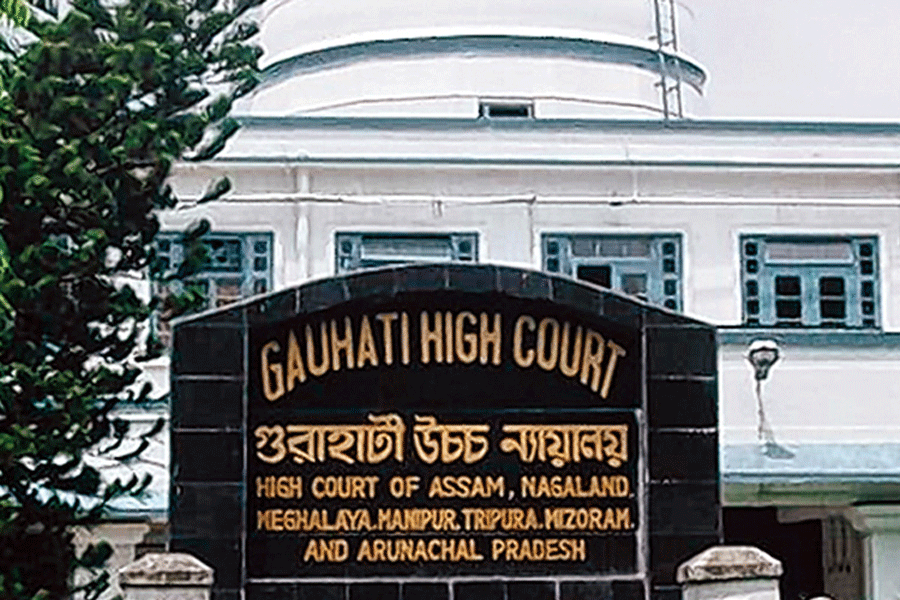Gauhati High Court on Thursday acquitted five persons convicted in the 2004 Dhemaji blast case that killed 13 people, including 10 children, overturning their conviction by the trial court in 2019 by “giving them the benefit of doubt” as the prosecution could not prove their guilt.
A division bench of Justices Michael Zothankhuma and Mridul Kumar Kalita in a 53-page ruling said the prosecution was not able to prove the guilt of the appellants in respect of the charges framed against them and “they are acquitted of the charges framed against them, by giving them the benefit of doubt”.
“As we find the impugned judgment dated July 4, 2019, passed by the learned trial court in Sessions Case No. 127(DH)/2011 is not sustainable, the same is accordingly set aside. The state authorities are directed to release the appellants from judicial custody immediately, if not wanted in some other criminal case...,” the ruling on the appeals filed by the convicted persons stated.
However, a victim family said they were mulling moving the Supreme Court against the verdict.
“Totally dissatisfied. The government has lost. It is a government failure, it is home department’s failure. I am planning to move the Supreme Court on my own against the verdict,” Nityananda Saikia, a lawyer, who lost two of his sisters, Rupa, 13, and Aruna, 15, told The Telegraph.
The explosion had been planned by the Ulfa to target VIPs during the August 15 parade at the Dhemaji College Ground in 2004, leaving 10 school students and three women, including a schoolteacher, dead.
Those acquitted included Lila Gogoi, Jatin Dowari, Dipanjali Borgohain, Muhi Handique and Hemen Gogoi, convicted under multiple IPC sections, including murder, criminal conspiracy, waging war against the State, the Explosive Substance Act, 1884 and The Unlawful Activities (Prevention) Act, 1967. The trial court had handed life terms to Handique, Dowari, Borgohain and Lila Gogoi and four years to Hemen Gogoi in 2019.
They were among 15 persons charge-sheeted in the case in 2011 of whom six were convicted by the trial court. Five appellants were acquitted on Thursday while one was acquitted earlier this year, Nityanand Saikia said, adding one of the accused is absconding.
According to the state government, the proscribed Ulfa had carried out the blast to “create an atmosphere of terror, with an aim to create an independent nation by declaring war against the State”.
The Ulfa leadership had in 2009 apologised for the blast, describing it as one of “the most tainted chapter of Ulfa’s revolutionary history”. It had stated that the members involved in the case had been expelled from the separatist outfit.
The high court’s division bench said the trial court had convicted the appellants without the prosecution being able to prove the charges against them beyond all reasonable doubt. “As such, we do not find any alternative, but to interfere with the findings of the learned trial court and the conviction of the appellants by the learned trial court,” it said.
The high court bench said the trial court had found the appellants Lila Gogoi, Jatin Dowari, Dipanjali Borgohain and Muhi Handique guilty of having hatched a conspiracy to carry out the blast.
“Though the learned trial court found them to be Ulfa members or/and active supporters of Ulfa, it has not given the basis for coming to such a finding. There is nothing in the evidence to show that there was any conspiracy made to do any illegal act and there is nothing to prove that they are members of Ulfa,” the high court said.
On Hemen Gogoi, the bench said, the trial court found he had given shelter to Ulfa members in the house that he shared with this brother and their wives.
“This was due to the fact that 4/5 boys had tea in their house and that one bag containing ‘gamosa’, one small notebook and one toothpaste left behind by the 4/5 boys had been produced by him, which was seized by the police. Accordingly, the learned trial court came to a finding that Hemen Gogoi was guilty of the offence under Section 10a(iv) and 13(2) of the UAPA. It baffles the mind as to how the above-seized articles prove anything connecting Hemen Gogoi with the bomb blast,” the high court said.
The high court ruling added that the prosecution had not been able to conclusively prove the guilt of the appellants, as there was no continuous chain of circumstantial evidence, with regard to the hypothesis that the appellants had hatched a conspiracy and had carried out the blast.
“We find that the findings of the learned trial court have not been supported by the evidence recorded by the prosecution witnesses. The trial court cannot make findings on the basis of speculation or suspicion and the same has to be based on evidence.”
“... While the offence committed is a serious one and though conviction may be based solely on circumstantial evidence, the prosecution must provide greater assistance to the court that its case has been proved beyond reasonable doubt. In essence, not only has the prosecution been unable to prove the foundational facts against the appellants, but the learned trial court has come to a finding based on suspicion and speculation, not supported by the evidence adduced by the prosecution witness,” the high court judgment said.
Assam chief minister Himanta Biswa Sarma on Friday said he has asked the director-general of police to study the high court judgment. “If we get legal advice we will appeal before the Supreme Court,” Sarma said.











